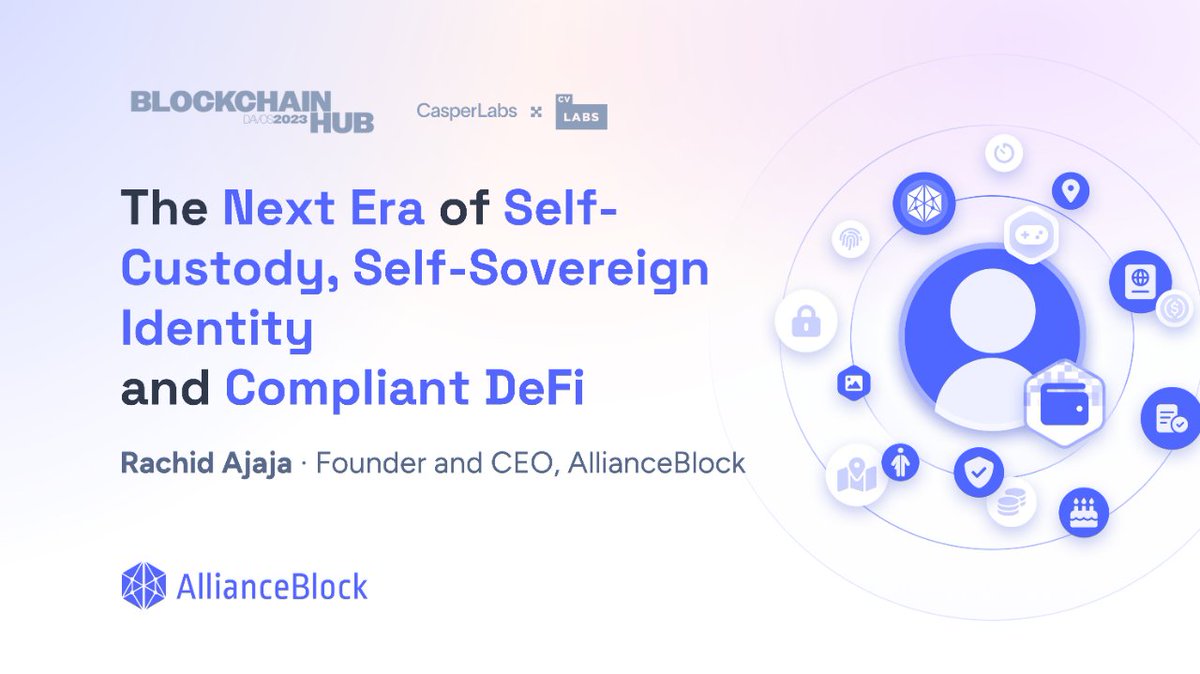Self Custody: Relinquishing Echoes of the Feudal System
The Quest for Digital Sovereignty

In the annals of history, the feudal system stands out as a period where personal ownership was more a matter of allegiance than autonomy.
Feudalism dominated medieval Europe between the 9th and 15th centuries, and was centered around a strict social hierarchy. Peasants and serfs occupied the bottom rungs, forced to live and work on land owned by feudal lords. In return for toiling on the lord’s estate, serfs were granted basic protection and the right to subsistence living. The serfs owned neither the land they cultivated nor the fruits of their labor. The feudal contract was one of allegiance rather than autonomy or ownership.
“The serf is a man without rights, a chattel without a soul.” — Prince Andrei Bolkonsky, from Leo Tolstoy’s War and Peace
The parallels to today’s digital landscape ring uncannily accurate. While the context is different, the core dynamic of large entities — exerting control over users’ digital lives — mirrors the manorial relationship between lord and serf.
Twitter’s 2021 ban of former US President Donald Trump, severing his direct line to over 80 million followers due to policy violations.
Ebooks vanish without notice, as Amazon customers learned when in 2015 Orwell classics like 1984 and Animal Farm disappeared from Kindles amidst a rights dispute.
Even virtual possessions like in-game assets are at risk. Vitalik Buterin learned the hard way that his virtual axes and armor in World of Warcraft could disappear overnight thanks to the developer’s EULA.
For today’s internet users, digital life often feels less like ownership and more like tenancy, corporate gatekeepers and centralized servers hold the keys. Just as serfs produced value for estates they did not own, we today lack real ownership over our data and what happens to it.

The decentralized architecture of emerging digital systems represents more than just a technological shift. Its a philosophical reconfiguration of how we conceive of digital property rights and governance.
“Man is born free, and everywhere he is in chains.”
—Jean-Jacques Rousseau, 18th century French philosopher
While major platforms provide spaces for online participation, identities and creations remain tethered to their closed, centralized ecosystems. An alternative vision is emerging — one founded on the ideals of self-ownership of digital assets. This alternate ethos challenges the status quo, championing the idea of “digital sovereignty” — the right of individuals to own and control their digital identities and assets without intermediaries.
Centralized internet platforms excel at providing security, economic viability, and governance at scale. Facebook spends billions on cybersecurity and content moderation to protect its users, a feat decentralized networks may struggle to match. However this top-down control comes at the cost of transparency, responsiveness, and user sovereignty. As private entities, these platforms ultimately answer to shareholders, not citizens.
Spotify courted controversy for COVID misinformation on Joe Rogan’s podcast before removing Neil Young’s music from the platform amidst the debate.
TikTok fined €345 million in 2023 for violating children’s privacy regulations.
Profit motives can blind centralized platforms to harms faced by marginalized groups. Meanwhile data transparency suffers. Centralized platforms readily cave to government censorship demands in exchange for access to lucrative markets. In China, tech giants are required to closely monitor and censor political dissent on behalf of the authoritarian state.
While decentralized platforms lack the resources and infrastructure for security and content moderation at comparable scale, their open design resists external coercion and gives users greater freedom over data and speech. The question remains whether decentralized models can overcome their limitations to offer a viable and ethical alternative.
Decentralized systems reimagine digital ownership through disruptive models like DAOs, NFTs, and social tokens. Underpinning these applications are blockchain and distributed storage technologies like IPFS. Blockchain provides tamper-proof, transparent record keeping and transactions without centralized servers. IPFS (InterPlanetary File System) stores files across decentralized nodes, resisting censorship or deletion.
Yet decentralized systems face hurdles in useability, scalability, and recourse. Blockchain UX remains unintuitive for mainstream users. Networks like Ethereum are slowly evolving to match the transaction volumes of centralized giants like Visa or Facebook. And decentralized systems lack centralized authorities to resolve disputes, freezing stolen funds or undoing harmful transactions.
While the vision of decentralized sovereignty empowers users, it also comes with increased risks and responsibilities. As it stands, users must educate themselves on topics like wallet security, gas fees, and transaction irreversibility that are abstracted away by centralized custodians. At their best, decentralized systems offer a compelling model for digital self-determination free from intermediaries centralized platforms provide.
While self-custody and decentralization champion the ideals of autonomy and sovereignty, centralized systems underscore the virtues of stability, and efficiency. Any philosophical reimagining of digital ownership must grapple with these complex trade-offs.
Pragmatism dictates that a binary choice between these systems is neither feasible nor desirable. Certain services, due to their complexity, scale, or criticality, might always be better managed centrally e.g. emergency response systems or large-scale public infrastructure projects. On the other hand, personal data, financial assets, or individual creative outputs might be better suited for decentralized, self-custodial solutions, where the user retains more direct control.
Just as feudal lords asserted control over both land and serfs, digital platforms today wield power over digital real estate and user data. Sociologist Shoshana Zuboff’s concept of “surveillance capitalism” infers user data becoming a commodity, traded and profited from, often without explicit user consent. The user, much like the serf, finds themselves bound to a system where their labor (data) benefits the platform, but they lack true ownership or control.
Centralized systems, with their streamlined decision-making and resource allocation, have historically been the bedrock of our digital infrastructure. Their ability to provide consistent, high-quality services at scale is unparalleled. For instance, the reliability of major cloud service providers or the vast content delivery networks of streaming platforms are testaments to the efficacy of centralized models. They offer a level of service quality, uptime, and security assurance that is challenging for decentralized systems to match, especially in their nascent stages.
However, the rise of self-custodial tools and decentralized platforms underscores a growing desire for greater control and ownership over one’s digital assets and identity. This isn’t merely a technological shift but a cultural and philosophical one. It speaks to a deeper yearning for agency, privacy, and a more equitable distribution of power in the digital realm. Decentralized systems, by their very design, offer resistance to censorship, enhanced user privacy, and a more democratized control over data.
“Two men at Google who do not enjoy the legitimacy of the vote, democratic oversight, or the demands of shareholder governance exercise control over the organization and presentation of the world’s information. One man at Facebook who does not enjoy the legitimacy of the vote, democratic oversight, or the demands of shareholder governance exercises control over an increasingly universal means of social connection along with the information concealed in its networks.”
― Shoshana Zuboff, The Age of Surveillance Capitalism: The Fight for a Human Future at the New Frontier of Power
Realizing the inclusive digital future promised by decentralization will require balancing innovation with pragmatism. Hybrid models that fuse centralized and decentralized elements provide one path forward in the near term. Centralized platforms adding decentralized features offers tangible improvements without sacrificing scalability. Social logins via blockchain accounts resist censorship while providing convenience. Decentralized digital credentials verify identities and credentials without central authorities.
Other decentralized solutions help solve governance challenges. Community moderation leverages collective wisdom to flag harmful content. Moderation algorithms remove prohibited material at scale. Hybrid adjudication systems blend automated flags with human oversight. Yet open questions remain around misinformation and illegal content at scale without centralized content police. Community models often lack agility while algorithms demonstrate bias. Finding solutions is urgent as decentralized social platforms gain adoption.
Promising solutions like account abstraction and sign-in protocols such as SIWE remove blockchain hurdles, increasing accessibility. Widespread adoption though requires continued focus on useability and onboarding. Clear regulations are key to prevent abuse while supporting innovation.
“The serf is a man who is bought and sold like a horse or a cow.” — Fyodor Dostoevsky, from The House of the Dead
Echoes of the feudal past serve as poignant reminders that concentrated power tends towards exploitation, but also that progress demands structure. The solution lies in philosophically reconstituting digital ownership in a mold that empowers users while acknowledging the need for accountability.
Decentralization brings the promise of digital emancipation. But careful governance and oversight are vital to ensure its merits are not hijacked by profiteers and speculators, as seen in domains like crypto. Centralized platforms are recalibrating, ceding greater user ownership rights.
At the heart, it is a question of balance. Of retaining centralized security and scalability while decentralizing control and access. The challenges are complex but the vision forward remains simpler — a digital landscape fueled by both empowerment and accountability. By bridging the virtues of two divergent systems, we inch towards the shared destination of an internet we all own and governance we all participate in.
Serfs no more.
Farcaster @papa — https://www.discove.xyz/@papa
Lens @papajams — https://lenster.xyz/u/papajams
Twitter @papajimjams — https://twitter.com/papajimjams
StarkNet — Leading DEXs & AMMs
Blockchain — The Smart Contract Development Platform Landscape
Blockchain — Decentralized Dispute Resolution







 140
140






Really pleased to publish this piece inspired by some convos with the good people at JediSwap + a Braavos tweet. Self Custody: Relinquishing Echoes of the Feudal System - The Quest for Digital Sovereignty https://paragraph.xyz/@papajams.eth/self-custody-relinquishing-echoes-of-the-feudal-system